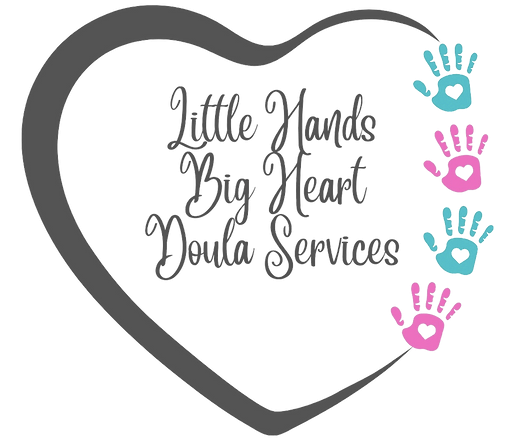
Doulas and Cesarean Births
I’ m Having a C-section! Do I need a Doula?
Doulas are not just for one kind of birth. They are for every birth. In C-sections—where so many decisions are made quickly and emotions can run high—a doula’s presence brings continuity, calm, and care. She doesn’t replace the medical team or the partner, but rather strengthens the entire support system, ensuring the birthing woman feels seen, heard, and supported. Whether your birth plan includes surgery or you’re preparing “just in case,” consider inviting a doula into your team. Their presence may be the steady anchor in what can feel like a storm—guiding you not just through the procedure, but into the sacred, unforgettable moment of meeting your baby
The Power of Presence
When most people think of doulas, they often picture them in natural, unmedicated home births—whispering affirmations, applying counterpressure, and helping the birthing mother breathe through contractions. But doulas aren't just for unmedicated or vaginal births. In fact, their support can be even more essential during a Cesarean birth (C-section), when emotional, physical, and relational needs often go unmet in a highly clinical setting. Whether the C-section is planned or unplanned, a doula can offer calming, continuous care that medical staff are often too busy or limited to provide. And that care isn’t just for the birthing mother—it extends to her partner, too. Let’s explore how doulas provide powerful, life-giving support during a Csection, for both the woman giving birth and the one walking beside her.
5 Benefits for Mom During a C-Section
4 Benefits for Dad During a C-Section
C-Section and Doula
Doulas are not just for one kind of birth. They are for every birth. In C-sections—where so many decisions are made quickly and emotions can run high—a doula’s presence brings continuity, calm, and care. She doesn’t replace the medical team or the partner, but rather strengthens the entire support system, ensuring the birthing woman feels seen, heard, and supported. Whether your birth plan includes surgery or you’re preparing “just in case,” consider inviting a doula into your team. Their presence may be the steady anchor in what can feel like a storm—guiding you not just through the procedure, but into the sacred, unforgettable moment of meeting your baby
The Power of Presence
When most people think of doulas, they often picture them in natural, unmedicated home births—whispering affirmations, applying counterpressure, and helping the birthing mother breathe through contractions. But doulas aren't just for unmedicated or vaginal births. In fact, their support can be even more essential during a Cesarean birth (C-section), when emotional, physical, and relational needs often go unmet in a highly clinical setting. Whether the C-section is planned or unplanned, a doula can offer calming, continuous care that medical staff are often too busy or limited to provide. And that care isn’t just for the birthing mother—it extends to her partner, too. Let’s explore how doulas provide powerful, life-giving support during a Csection, for both the woman giving birth and the one walking beside her.
5 Benefits for Mom During a C-Section
- Emotional Support During a High-Stress Time: Even when a C-section is scheduled, it can be emotionally complex. Feelings of disappointment, anxiety, fear, or even grief over an unplanned surgical birth are common. A doula is trained to recognize and hold space for these emotions, providing calm, nonjudgmental support before, during, and after surgery.
- Preparing for What to Expect: Doulas educate their clients ahead of time about what a C-section involves—from what the operating room looks like, to how the spinal anesthesia will feel, to what recovery might include. This information helps reduce fear and increase a sense of control.
- Grounding Presence in the OR (When Permitted) In some hospitals, doulas are allowed to be in the operating room alongside the partner. If permitted, the doula offers hands-on comfort—such as gentle touch, words of reassurance, or helping focus on breathing techniques—during surgery. If the partner is feeling overwhelmed or is attending to the baby, the doula remains a comforting presence for the mother.
- Immediate Post-Birth Support: After the baby is born, there’s often a separation between mother and baby due to medical checks or recovery protocols. A doula helps bridge that gap—assisting with early skin-to-skin if allowed, helping initiate breastfeeding, or simply offering encouragement and presence while the mother is in recovery.
- Advocacy and Communication: Hospitals can be fast-moving, clinical spaces. A doula helps translate what’s happening in real time and supports the birthing woman in asking questions or voicing her preferences. Though they don’t speak for the mother, they empower her to advocate for herself with confidence.
4 Benefits for Dad During a C-Section
- Emotional Reassurance: Partners often feel pressure to be strong and calm even when they are scared. A doula is a steadying influence—offering the partner reassurance, a listening ear, and practical ways to support the birthing mother.
- Step-by-Step Guidance: During a C-section, many partners don’t know what to expect. A doula can prepare them ahead of time: where to sit, what to do, what they’ll see, and how they can be most supportive. This reduces anxiety and helps them feel more involved and less like a bystander.
- Tag-Team Support: If the partner needs a break—whether to step outside, get food, or manage emotions—the doula can remain with the mother. This teamwork ensures the mother is never alone and the partner doesn’t have to feel like they’re abandoning her to care for themselves.
- Celebrating the Moment: In the rush of surgery and post-op care, the emotional beauty of birth can feel lost. A doula helps bring that sacredness back—reminding both parents of the significance of the moment, helping capture photos (when permitted), and encouraging connection.
C-Section and Doula
